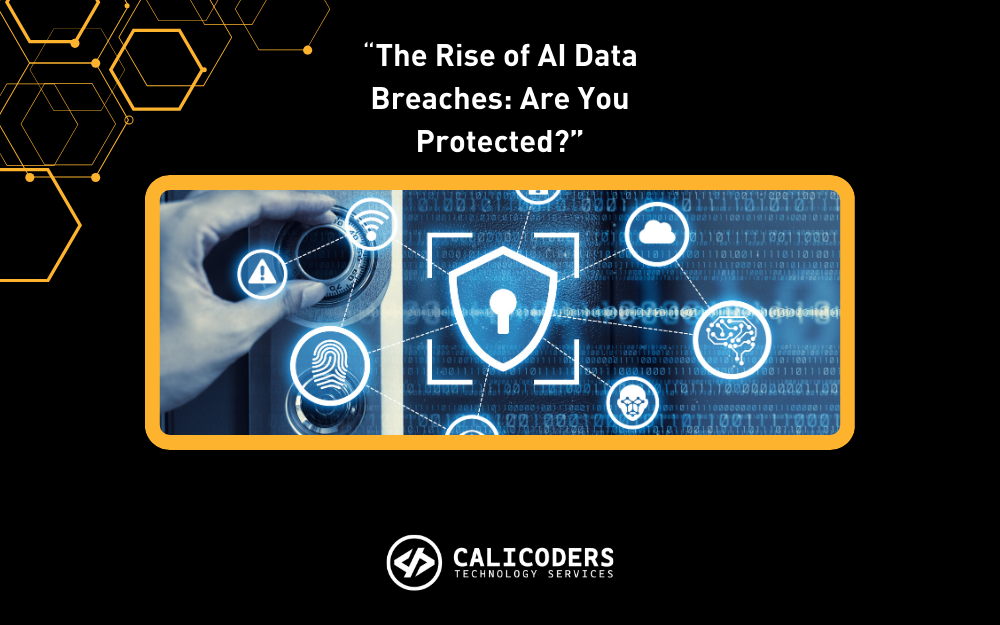
Artificial Intelligence (AI) is revolutionizing industries by offering innovative solutions and automation capabilities. However, with these advancements comes a growing concern: AI data breaches. As AI becomes more integrated into business operations, the risks associated with it increase. The data that AI systems collect, analyze, and utilize becomes a prime target for cybercriminals.
The Reality of AI Data Breaches
Recent studies have revealed a startling statistic—77% of businesses experienced a breach of their AI systems within the past year. This poses a significant threat to organizations of all sizes. An AI data breach can expose sensitive data, compromise intellectual property, and disrupt critical business operations. But before you hit the panic button, let’s delve into why AI data breaches are on the rise and what steps you can take to safeguard your company’s valuable information.
Why AI Data Breaches Are Increasing
Several factors contribute to the growing frequency of AI data breaches:
- Expanding Attack Surface: As AI adoption grows, so does the number of potential entry points for attackers. Hackers can target vulnerabilities in AI models, data pipelines, and the underlying infrastructure that supports them.
- Data as AI’s Fuel: AI thrives on vast amounts of data, making it a tempting target for cybercriminals. This data often includes customer information, business secrets, financial records, and personal details of employees.
- The “Black Box” Problem: Many AI models are complex and opaque, making it difficult to identify vulnerabilities and track data flow. This lack of transparency hinders the detection and prevention of security breaches.
- Evolving Attack Techniques: Cybercriminals continuously develop new methods to exploit security gaps. Techniques like adversarial attacks can manipulate AI models, producing incorrect outputs or leaking sensitive data.
The Potential Impact of an AI Data Breach
The consequences of an AI data breach can be far-reaching and devastating for your business:
- Financial Losses: Data breaches can lead to hefty fines, lawsuits, and reputational damage, significantly impacting your bottom line.
- Disrupted Operations: AI-powered systems are often critical to business functions. A breach can disrupt these functionalities, hindering productivity and customer service.
- Intellectual Property Theft: AI models themselves can be considered intellectual property. A breach could expose your proprietary AI models, giving competitors a significant advantage.
- Privacy Concerns: AI data breaches can compromise sensitive customer and employee information, raising privacy concerns and potentially leading to regulatory action.
Protecting Your Business from AI Data Breaches
The good news is that there are proactive steps you can take to mitigate the risk of AI data breaches:
- Data Governance: Implement robust data governance practices, including classifying and labeling data based on sensitivity, establishing clear access controls, and regularly monitoring data usage.
- Security by Design: Integrate security considerations into AI development or adoption by incorporating secure coding practices, vulnerability assessments, and penetration testing.
- Model Explainability: Invest in techniques like explainable AI (XAI) that increase transparency in AI models, allowing you to understand how the model arrives at its results and identify potential vulnerabilities or biases.
- Threat Modeling: Conduct regular threat modeling exercises to identify potential weaknesses in your AI systems and data pipelines. This helps prioritize vulnerabilities and allocate resources for remediation.
- Employee Training: Educate your employees about AI security threats and best practices for data handling. Empower them to identify and report suspicious activity.
- Security Patch Management: Keep all AI software and hardware components updated with the latest security patches to protect against known exploits.
- Security Testing: Regularly conduct security testing of your AI models and data pipelines to identify vulnerabilities before attackers exploit them.
- Stay Informed: Keep yourself updated on the latest AI security threats and best practices by subscribing to reliable cybersecurity publications, attending industry conferences, and participating in online workshops on AI and security.
Partnering for Enhanced Protection
Consider working with a reputable IT provider that understands AI security. At [Your MSP Name], we offer expertise in threat detection, vulnerability assessment, and penetration testing tailored to AI systems. Additionally, explore solutions from software vendors who offer AI-powered anomaly detection tools to analyze data patterns and identify unusual activity that might suggest a potential breach.
Building a Fortress Against AI Data Breaches
AI offers immense benefits, but neglecting its security risks can leave your company exposed. If you’re looking for a trusted partner to help address AI cybersecurity, our team of experts is here to help. We’ll evaluate your entire IT infrastructure—both AI and non-AI components—and implement proactive measures for monitoring and protection. With our support, you can rest easy knowing your business is safeguarded in an increasingly dangerous digital landscape.
To get started, call our office at 909-654-6444 or click here to schedule a consultation and fortify your cybersecurity defenses.
